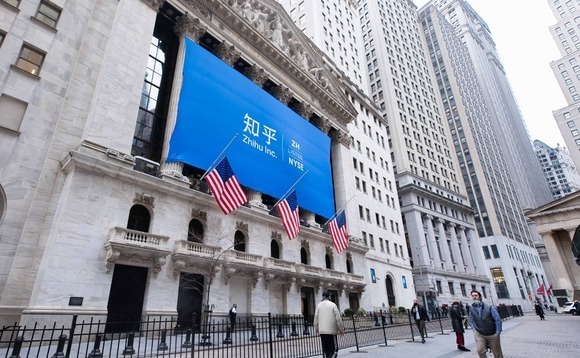
US regulator gets access to Chinese audits

The threat of delisting that has haunted Chinese companies that trade on US exchanges appears to have receded after the US regulators announced they had gained full access to the audits of these companies for the first time.
The US Public Company Accounting Oversight Board (PCAOB) said it sent 30 staff to Hong Kong between September and November to conduct inspections and investigations, according to a statement. This followed the signing of an agreement with Chinese regulators that gave the PCAOB full discretion to select which firms would be inspected, access to all audit papers, and the ability to interview relevant personnel.
KPMG Huazhen in the mainland and PwC in Hong Kong were selected for inspection and three companies – two from the mainland and one from Hong Kong – were subjected to investigation. The PCAOB added that it targeted the type of audit engagements that Chinese authorities had previously deemed out of bounds on grounds of sensitivity and that it was satisfied with the outcomes.
More than 200 private equity-backed Chinese companies have listed on the New York Stock Exchange or NASDAQ since 2000, when the variable interest entity (VIE) structure emerged as a means for foreign investors to access Chinese industries where their direct involvement is forbidden. IPO proceeds amount to USD 80bn, AVCJ Research's records show.
For years, Beijing resisted attempts by the PCAOB to inspect audit documents for US-listed Chinese companies. US lawmakers raised the stakes in 2020 with the passage of the Holding Foreign Companies Accountable Act. It gave the PCAOB more teeth – to the point that non-compliance could result in enforced delisting.
In late 2021, the US Securities and Exchange Commission (SEC) finalised implementation guidelines stating that if inspection of a company was blocked for three consecutive years, US-based trading of its securities would be prohibited. It was estimated at the start of this year that the delisting of 250 Chinese companies trading on US exchanges could start in 2024.
Recent efforts avert such action, although Gary Gensler, chair of the SEC, observed that "a lot of work remains to protect investors and ensure ongoing compliance." He highlighted the need for continued access, for accounting firms in China and Hong Kong to strengthen their audit quality, and for US-listed Chinese companies to make specific disclosures about the operational and legal risks they face.
"This fall's inspections and investigations followed the signing of the statement of protocol in August 2022 by the PCAOB, the CSRC, and China's Ministry of Finance," Gensler added in a statement. "At the time, I said the proof would be in the pudding. Today, we know that the proof was indeed in the pudding, at least in 2022."
US listings by Chinese companies with financial sponsors have been virtually non-existent since the middle of 2021 – after USD 12.7bn was raised through 18 IPOs during the first six months of the year. The audit dispute is just one factor.
More pertinently, IPOs stopped following an investigation into ride-hailing platform Didi over data privacy breaches. Regulators subsequently issued draft measures requiring local companies holding personal information on more than one million users to report to relevant agencies about data security before pursuing offshore IPOs.
The CSRC subsequently published proposed offshore listing rules that fell short of requiring companies to seek approval for IPOs and imposing formal vetting of documentation but indicated financial penalties would be imposed for a failure to file or for disclosing significant false information.
Around the same time, the SEC tightened oversight of VIEs. It now requires Chinese companies to clearly disclose VIEs, including the relationship between the listed entity and entities responsible for business operations. They must outline the risks associated with VIEs and the implications of contracts being deemed unenforceable.
Latest News
Asian GPs slow implementation of ESG policies - survey
Asia-based private equity firms are assigning more dedicated resources to environment, social, and governance (ESG) programmes, but policy changes have slowed in the past 12 months, in part due to concerns raised internally and by LPs, according to a...
Singapore fintech start-up LXA gets $10m seed round
New Enterprise Associates (NEA) has led a USD 10m seed round for Singapore’s LXA, a financial technology start-up launched by a former Asia senior executive at The Blackstone Group.
India's InCred announces $60m round, claims unicorn status
Indian non-bank lender InCred Financial Services said it has received INR 5bn (USD 60m) at a valuation of at least USD 1bn from unnamed investors including “a global private equity fund.”
Insight leads $50m round for Australia's Roller
Insight Partners has led a USD 50m round for Australia’s Roller, a venue management software provider specializing in family fun parks.








